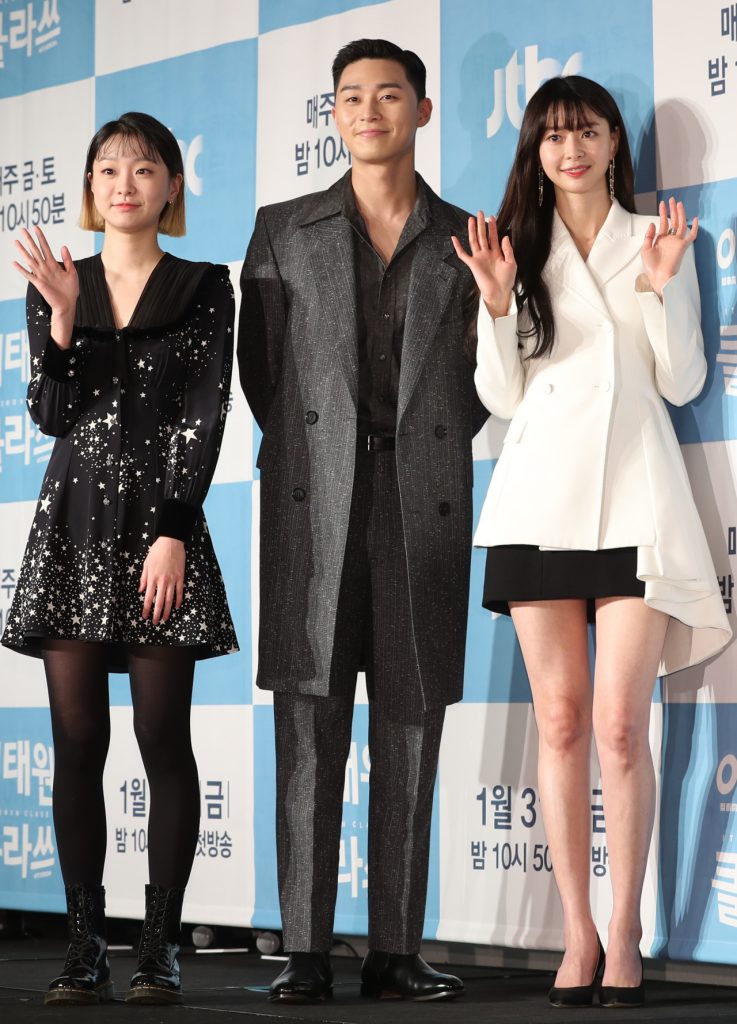
The JTBC webtoon-turned-drama came to an end last week on the 21st March, seeing its peak of viewership to date. 16.5% marked it as the second-highest in viewership ratings for JTBC and there are more than plenty of reasons as to why.
On face value, Itaewon Class came across as another fairly light K-drama with the plot of a struggling young man trying to avenge the murder of his father by a conglomerate tyrant’s son. Itaewon class is all of that and more!
Park Seo-joon plays the role of Park Saeroyi, a young man raised by a single father who taught him to live by his principles in order to lead a life he is proud of. Early on the series, his father is wrongly fired and later killed in an accident. Against all odds, Saeroyi refocuses his life pursuits and charges full forces towards making his enemies pay for their wrongdoings. Along the way, he allows a few select misfits to join his plans. He pours all his faith and love into them to make sure they grow with him and discover their hidden potential. Despite society looking down on them, they become his family.
Looking back at the series, there is no debate about how strongly it all began. The drama was made unpredictable and unforgettable as viewers were gripped by the collapse of Saeroyi’s young and innocent life. The fast pace of the developments heightened the tension.
The plot of revenge of the underdog out to destroy a powerhouse that wronged him and his family is too familiar to K-drama fans. Yet, the drama managed to engage the audience with enough plot twists and elements of unpredictability that kept flow throughout. With every revenge plot, the audience is rooting for the protagonist to thrive despite the odds. The level of acting and the way in which the characters are written builds such an emotional attachment for the audience creating a rapport between the two.
Saeroyi’s character is simultaneously deep — human and filled with consciousness —- and shallow to what others may see as blatantly obvious. Early on, he appears to be focused on making his dream to become a police officer happen. Despite everything going wrong, his character is painted in perseverance and strength.
Never has the proverb “Where there’s a will, there’s a way” been so embodied by a character like Park Saeroyi. His character beautifully demonstrates the hardships and struggles in pursuing your goals in this day and age, especially if you don’t particularly fit the mould. He has a consistent outlook of life and strongly believes in doing what is right, unable to understand why others would do anything but. His unwavering faith in himself and the knowledge that he is doing what is right is a point of attraction to everyone around him.
Though it seems obvious and a given to do what is right, Park Saeroyi often came across as a unicorn, rare in all its forms. A character to aspire to and often quoted by those around him. Nonetheless, this consensus towards virtue made for a richer storyline.
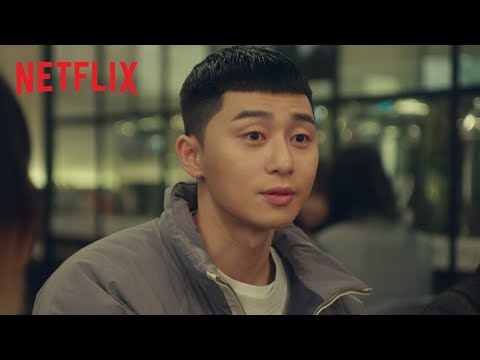
Though Saeroyi’s ultimate goal is revenge, the message of the drama is set around faith in people and inclusivity. The drama does well in communicating the individuality in society: accepting each of our differences and finding strength in working together towards a common goal.
Itaewon class draws so much of its strength and popularity in the way its characters are so rich and rounded in context. It has skilfully used to clearly show the reality in which societies are still lacking. Each character served as a teaching opportunity to how minorities face discrimination; the LGBTQ+ community, Ex-convicts, Non-natives in a homogenous society, class systems and so on.
The representation of the LGBTQ+ community by a trans woman, Ma Hyunyi (Lee Joo-young) and how society neglects to acknowledge the community altogether is almost unspoken or heard of in K-dramas. Lee Joo-young’s portrayal of the character is vital at opening more of a discussion point around the matter and it seems to have been received well.
The drama also speaks volumes about the ex-convict minority. Seen as lacking in the ability to rehabilitate and reenter society, they are refused back into society by both the law and culture itself. The writer does well in creating a crude contrast between the mindsets of Saeroyi and Choi Seung soo. He attempts to paint a clear distinction between what should be the case against what the reality is, respectively.
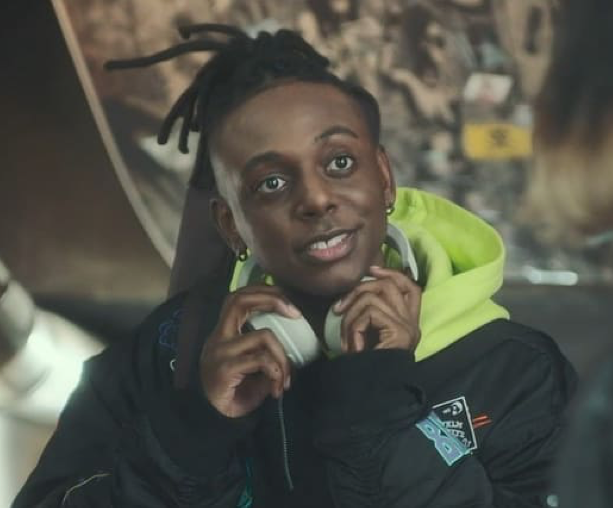
As a non-Korean viewer, seeing a foreigner playing a role that is significant and not in passing, is exciting, to say the least. Including of a foreigner (Chris Lyon) into this as a major sub-plot mirrors the way in which the world has and is currently changing. Statistically, South Korea and most of its neighbouring countries are homogeneous in nature and rarely experienced crossovers with other races by blood. Lyon plays as Toni, and Toni’s role is poignant yet direct in the way mixed kids experience discrimination in their own country.
It is also interesting to see how the writer represented the young generations’ side to the issue. For example, in scenes where Toni tries to convince his team that he is in fact Korean despite what he may look like. This clearly demonstrates how the idea is yet to be received across all generations.
There are plenty of things the drama does well. What felt a little lacklustre, however, is the way Oh SooA’s (Kwon Nara) character is played out. Though she appears to be vital at the beginning of the series, she eventually becomes almost dispensable. Her character seems to be used as a driving mechanism in relation to Yiseo. After a certain point, it becomes frustrating seeing how she cannot choose between Saeroyi and her career.
On the other side of the spectrum, Yiseo (Kim Dami), is arguably the most central character in moving the drama away from the predictable K-drama narrative. Her volatile and fiery character enriches the drama, keeping the audience actively either rooting for and against her decisions.
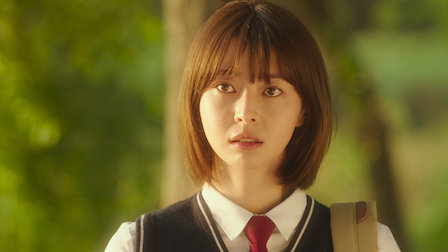
In the early days of the drama, it was worrying to see the chemistry between Yiseo and Saeroyi. Though she is serious about him — convincingly — her perspective on life and her age set their goals and ideals way off. Thus making the audience root for Saeroyi and SooA, or neither at some points. Yiseo’s character development, however, was gradual and clearly spelt out to the audience, giving the illusion of involvement of the audience. So much so that it slowly made her more and more palatable and less like a sociopath.
Another character that almost missed the mark is Geun Soo’s (Kim Dong-hee). Confused about his place anywhere in his surroundings he was constantly seeking approval from father or father figures (Saeroyi). It is interesting how this concept is dropped out of focus to pursue Jangga for Yiseo. In trying to make more space for his character, the writer could have made the transition of focus a little smoother, at least to justify his savagery in the second half of the series.
The casting team did well in casting fresh faces and a mixture of well-known actors. There is plenty more to be said about the cast and the calibre of acting. It goes without saying that Park Seo-joon is incredible at embodying Park Saeroyi. Once again, he has proved how much of a versatile actor he truly is.
One scene that has been memorable is the second episode in which he finds Geunwon the culprit and rushes to find him in the hospital. The immense portrayal of pain and loss resonated with many of the viewers.
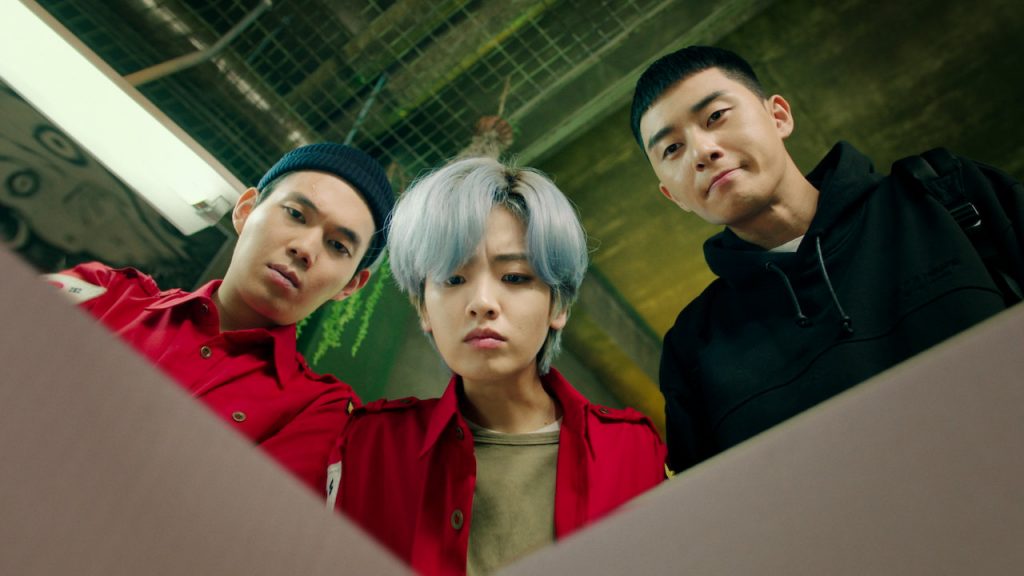
Playing the role of antagonist, Yoo Jae-myung is very well cast for the role and truly took to the character well. His portrayal of a ruthless father and businessman was impressive and very powerful.
The last couple of episodes were a point of discussion between fans of the drama. While some focused on the way in which the switch just flicks onto the realization of his feelings for Yiseo seeming out of the blue. Others focused on the way Saeroyi’s character overcomes the stages of grief in his dreams of his father. Finally learning what his father intended for him to understand and being able to let go.
The storyline’s progression was significant and consistent with his ideas of choosing people over anything else. Doing what is right according to the moment, prioritising Yiseo’s safety in exchange for useless pride was impactful.
With that said, releasing his repressed anger at Geunwon (Ahn Bohyun) in the finale was more than satisfying to watch. Geunwon’s vile character leaves a familiar taste in the mouths of fans of the HBO drama Game of thrones. Geunwon is immature, shameless and blatantly insecure. This character is written almost like a cartoonish binary to all that is Saeroyi.
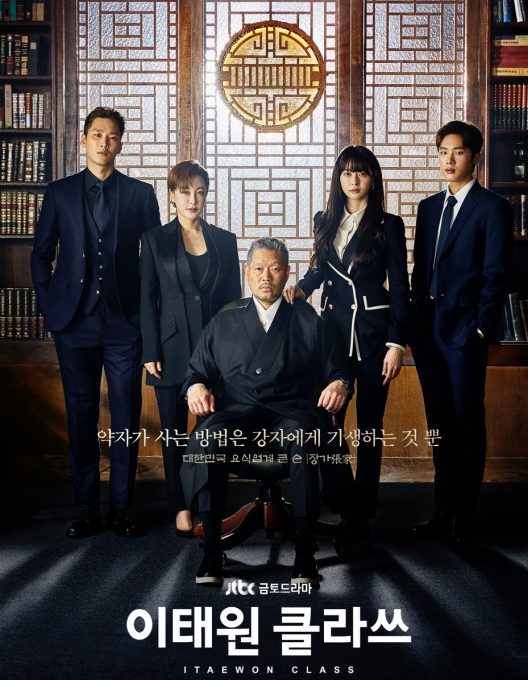
We cannot complete a review of Itaewon Class without commending the cinematography. Another effective factor at amplifying the narrative and doing the acting justice it deserves. One of the many memorable moments is the haunting scenes of the father’s accident. The tumbling camera technique in Park Seung yeol’s perspective is startling and heartbreaking, to say the least.
Finally, and on a lighter note, more praise goes to the many angles used of the Seoul Tower that romanticized the iconic attraction. Giving us all the feels of shots from a set in Paris’s Eiffel tour or NY statue of liberty.
Although the narrative and characters may at times be unrealistic, the message of “Create your own chances in life despite setbacks” is well illustrated. It’s evident in the popularity of the drama to an international scale with Netflix, how effective the storyline is.
From the acting and the cinematography to the flawless soundtrack, Itaewon Class sets the bar very high for dramas of 2020.
(YouTube. Images via Netflix, JTBC. Aljazeera, Nielson Korean)



0 Comments